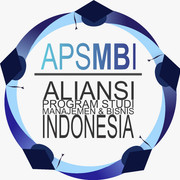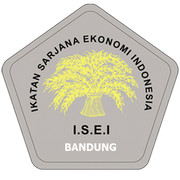Kontribusi Pendidikan Kewirausahaan dan Lingkungan Keluarga terhadap Niat Berwirausaha: Peran Mediasi Religiusitas
Abstract
This study aims to determine how the impact of Entrepreneurship Education and the Family Environment on Entrepreneurial Intention, considering that account the mediating role of religiosity. Increasing Entrepreneurial Intention is an important factor in generating new entrepreneurs, notably in facing financial and social issues in global competition. Therefore, this study intends to dig deeper into what are the critical factors that can influence Entrepreneurial Intention. This study adopted a quantitative approach and involved 162 respondents from multiple educational and religious backgrounds. This research analysis adopts the Structural Equation Modeling (SEM) technique with the Partial Least Squares (PLS) approach. This research has important effects in the perspective of entrepreneurship education and policy development. It is hoped that the findings of this study can offer practical suggestions for educational institutions, families and the government in increasing Entrepreneurial Intention through the effective role of entrepreneurship education, a conducive family environment, and the growth of the religious dimension.
Keywords
Full Text:
PDFReferences
Aini, S. N., Purwana, D. E., & Ari, S. (2015). Pengaruh Lingkungan Keluarga Dan Efikasi Diri Terhadap Motivasi Berwirausaha Pada Mahasiswa Fakultas Ekonomi Universitas Negeri Jakarta. Jurnal Pendidikan Ekonomi dan Bisnis, 22-50.
Anggraeni, B., & Harnanik. (2015). Pengaruh Pengetahuan Kewirausahaan Dan Lingkungan Keluarga Terhadap Minat Berwirausaha Siswa Kelas Xi Smk Islam Nusantara Comal Kabupaten Pemalang. Dinamika Pendidikan, 42-52.
Anisa. (2020). Pengaruh Lingkungan Keluarga Terhadap Pembentukan Karakter Religius Peserta Didik Di Sd Islam As-Salam Dan Daarul Fikri Malang. Ibtidai'y Datokarama Jurnal Pendidikan Dasar, 41-56.
Anwar, D., Suryani, S., & Marnola, I. (2019). Pengaruh Religiusitas Dan Komunitas Terhadap Motivasi Berwirausaha Para Pemuda. JEBI (Jurnal Ekonomi dan Bisnis Islam)
Fauzia, I. Y. (2019). Islamic Entrepreneurship: Kewirausahaan Berbasis Pemberdayaan. Depok: Rajawali Pers.
Fornell, C., & Larcker, D. F. (1981). Evaluating structural equation models with unobservable variables and measurement error. Journal of Marketing Research, 39-50.
Giacomin, O., Janssen, F., Shinnar, R. S., Gundolf, K., & Shir, N. (2023). Individual religious affiliation, religiosity and Entrepreneurial Intentions among students in four countries. International Small Business Journal, 318-346.
Hair, J., Hult, G., Ringle, C., & Sarstedt, M. (2017). A Primer on Partial Least Squares Structural Equation Modeling (PLS-SEM) 2nd Edition. Thousand Oaks, CA: Sage Publications Inc.
Hakim, A. R. (2023, 3 10). Indonesia Mau Jadi Negara Maju, Kejar Dulu Jumlah Pengusaha 4 Persen Total Penduduk. Retrieved from Liputan6.com: https://www.liputan6.com/bisnis/read/5229915/indonesia-mau-jadi-negara-maju-kejar-dulu-jumlah-pengusaha-4-persen-total-penduduk
Hämäläinen, M., Oikkonen, E., & Pihkala, T. (2018). Principals Promoting Entrepreneurship Education: The Relationships Between Development Activities And School Practises. Journal of Entrepreneurship Education, 1-19.
Hasanah, K. U. (2022). Pengaruh Religiusitas dan Program Pendidikan Entrepreneurship terhadap Intensi Berwirausaha Melalui Motivasi Berwirausaha Santri di Fathul Ulum Ngoro Jombang. Program Magister Pendidikan Agama Islam Pascasarjana Universitas Islam Negeri Maulana Malik Ibrahim.
Hungerman, D. M. (2014). The Effect of Education on Religion: Evidence From Compulsory Schooling Laws. Journal of Economic Behavior and Organization, 52-63.
James, W. (2015). Varieties Of Religious Experience A Study In Human Nature. Yogyakarta: Diva Press.
Khairinal, Syuhadah, S., & Fitriani. (2022). Pengaruh Lingkungan Keluarga, Pendidikan Kewirausahaan, Dan Jiwa Kewirausahaan Terhadap Minat Berwirausaha Siswa SMKN 1 Kota Jambi. Jurnal Manajemen Pendidikan dan Ilmu Sosial, 163-174.
Koenig, L. B., McGue, M., & Lacono, W. G. (2009). Rearing Environmental Influences on Religiousness: An Investigation of Adolescent Adoptees. Pers Individ Dif, 652–656.
Lingappa, A., Shah, A., & Mathew, A. O. (2020). Academic, Family, and Peer Influence on Entrepreneurial Intention of Engineering Students. SAGE Open, 1-12.
Mashudi, I., Aneta, A., Panai, A. H., & Djafri, N. (2023). Kewirausahaan Berbasis Society 5.0 Di Tingkat Perguruan Tinggi. Bantul: Penerbit Tanah Air Beta.
Mukson, Subagja, H., Riono, S. B., Indriyani, A., & Syaifulloh, M. (2022). Does the Family Environment and Entrepreneurship Education Promote Students’ Entrepreneurial Intentions? The Mediating Role of Entrepreneurial Motivations. ITALIENISCH, 12(1), 306–313., 306–313.
Nguyen, Q. D., & Nguyen, H. T. (2023). Entrepreneurship Education and Entrepreneurial Intention: The Mediating Role of Entrepreneurial Capacity. The International Journal of Management Education.
Prihantoro, W. S., & Hadi, S. (2016). Pengaruh Pendidikan Kewirausahaan, Motivasi Berwirausaha Dan Lingkungan Keluarga Terhadap Sikap Mental Kewirausahaan. Economic Education Analysis Journal, 705-717.
Purnamawati, N. K., Adiandari, A. M., Amrita, N. D., & Perdanawati, L. P. (2020). The Effect Of Entrepreneurship Education And Family Environment On Interests Entrepreneurship In Student Of The Faculty Of Economics, University Of Ngurah Rai In Denpasar. ADI Journal on Recent Innovation (AJRI, 158-166.
Purwatiningsih, A., & Kamaludin. (2018). Pengaruh Model Pembelajaran Konstruktivistik Terhadap Orientasi Berwirausaha. Conference on Innovation and Application of Science and Technology (CIASTECH 2018) (pp. 11-20). Malang: Universitas Widyagama Malang.
Putra, I. D. (2018). Analisis Faktor-Faktor Yang Mempengaruhi Minat Berwirausaha Mahasiswa Fakultas Ekonomi Universitas Islam Indonesia. Universitas Islam Indonesia.
Putra, S. S. (2017). Pengaruh Pendidikan Kewirausahaan Terhadap Minat Berwirausaha Mahasiswa. Jurnal Populis, 537-546.
Ramdhani, R. F., Hasan, M., Kholifah, N., & Nurtanto, M. (2021). Pendidikan Kewirausahaan. Medan: Yayasan Kita Menulis.
Rusmiati, A. (2019). Pengaruh Religiusitas Keluarga Dan Jenis Sekolah Terhadap Perilaku Moral Siswa Smk Di Kabupaten Bantul. Jurnai Ideguru, 25-31.
Safitri, K. (2021, 5 3). Pemerintah Targetkan Rasio Kewirausahaan Indonesia 4 Persen. Retrieved from Kompas.com: https://money.kompas.com/read/2021/05/03/091000626/pemerintah-targetkan-rasio-kewirausahaan-indonesia-4-persen
Santosa, P. I. (2018). Metode Penelitian Kuantitatif: Pengembangan Hipotesis dan Pengujiannya Menggunakan SmartPLS. Yogyakarta: Penerbit Andi.
Sugiyono. (2019). Metode Penelitian Pendidikan. Yogyakarta: Alfabeta.
Sulaeman. (2022, 3 30). Butuh 12 Persen untuk Menjadi Negara Maju, Rasio Wirausaha RI Baru 3,47 Persen. Retrieved from www.merdeka.com: https://www.merdeka.com/uang/butuh-12-persen-untuk-menjadi-negara-maju-rasio-wirausaha-ri-baru-347-persen.html
Sulhaini, Ardiani, B. N., & Rosiana, W. (2020). Usaha Pariwisata Halal; Self-Efificacy, Pengetahuan Pariwisata Halal, “Religiusitas dan Minat Berwirausaha Mahasiswa Di Nusa Tenggara Barat. Jurnal Magister Manejemen Universitas Mataram.
Suryana. (2013). Kewirausahaan: Kiat dan Proses Menuju Sukses. Jakarta: Salemba Empat.
Toledano, N., & Karanda, C. (2017). Morality, Religious Writings, and Entrepreneurship Education: An Integrative Proposal Using the Example of Christian Narratives. Journal of Moral Education, 195-211.
Wibowo, B. (2017). Religiosity and Entrepreneurial Intention. Etikonomi, 187-206.
DOI: https://doi.org/10.17509/image.2023.019
Refbacks
- There are currently no refbacks.
Copyright (c) 2023 Rici Solihin, Ade Sobandi, Chairul Furqon
License URL: https://creativecommons.org/licenses/by-sa/4.0/
Image : Jurnal Riset Manajemen is licensed under a Creative Commons Attribution-ShareAlike 4.0 International License
View My Stats



